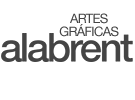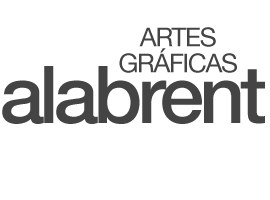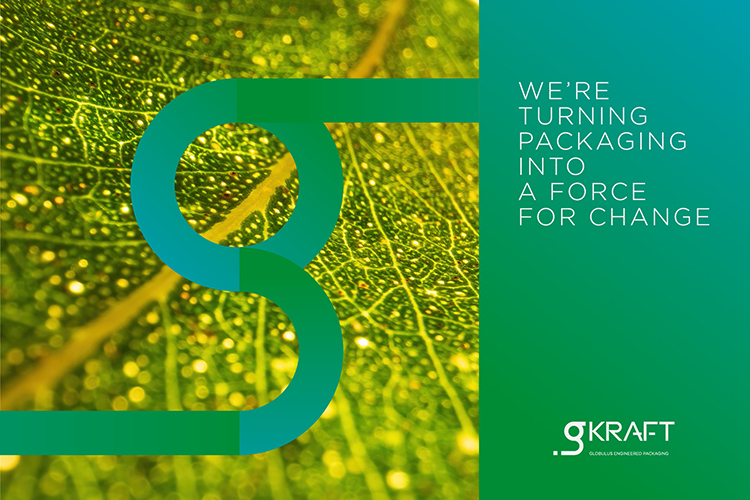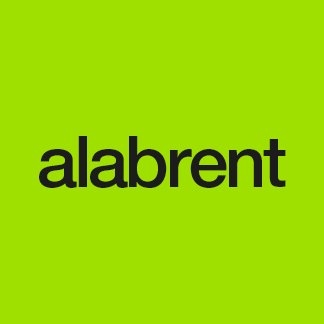Redacción Alabrent
The brand's launch was made official last Monday, November 1st, the date on which Portuguese legislation prohibiting single-use plastics entered into force. Thus, gKraft presents itself as “the” solution that guarantees the reduction of the use of fossil materials, as is the case with most plastics, in favour of renewable and biodegradable forest-based materials – “From Fossil to Forest” – to help build a sustainable future.Forest-based products, particularly those obtained from planted forests, are essential in the transition away from a linear fossil economy – based on finite, environmentally unfriendly resources with no future – to a sustainable circular bioeconomy which is nature-friendly and climate-neutral.
These new packaging solutions created by The Navigator Company were developed to meet the specific needs of the packaging market, particularly the industrial and retail segments: food, catering, pharmaceutical, apparel and cosmetics.
The brand name, gKraft, uses the term “Kraft”, which means “strength” and “power” in reference to the company's manufacturing process, in which the fibres obtained have better mechanical properties and greater resistance. In addition, the meaning of the letter "g" in gKraft refers to globulus (the species of eucalyptus used in paper production), as well as the various characteristics that define this new product - good, green, game changer, guaranteed results, growth – and that make this packaging solution meet all sustainability requirements.
By using short eucalyptus fibres in the packaging segment, the company is taking another step forward in the innovation of its products. Despite having produced packaging paper for almost twenty years, The Navigator Company capitalised on the pandemic period to carry out extensive research, development and innovation, led by a multidisciplinary team and supported by RAIZ – Forest and Paper Research Institute, which took advantage of the specific molecular structure and morphology of Eucalyptus globulus fibres to develop resistant and sustainable paper materials, as alternatives to single-use plastic, which are safer and healthier for the food industry. The project is now generating a new portfolio of patents, one of which has already been submitted for publication in June. In addition, two other patents are being developed, one in an advanced preparation phase and the other still in the trial phase.
The gKraft brand includes three sub-brands targeting specific market needs: FLEX was designed to develop flexible packaging for the food industry, catering and pharmaceutical trade; BAG is intended for retail product packaging (already used by major international brands such as Zara, Victoria Secret, Desigual, Nike, Cristiano Ronaldo Museum and Real Madrid, that use Navigator paper for their paper bags, helping to fight against the use of single-use plastic); finally, BOX (focused on paper for corrugated cardboard boxes) is intended for more resistant industrial and retail packaging, namely food retail, where there is a growing need for shelf-ready packaging, particularly in refrigerated environments, with high-quality printing to attract consumers and differentiate brands from the competition, which is critical today.
In addition to providing lighter packaging with the same strength, this new range of packaging papers is also safer and healthier when in contact with skin and food compared to recycled papers which have been banned in some European countries whenever there is direct contact with food due to the fact that they contain harmful chemicals. The Navigator Company has secured the approval of food contact papers with ISEGA, the German institute for certification of packaging products, as well as with InnovHub in Milan, guaranteeing the maximum safety of its products for the food industry, being used, for example, in the production of pizza boxes made from virgin fibre and, as such, without any risk of contamination.
In addition, the new brand provides a quality seal that can be used by all producers who use gKraft paper as a raw material, thus reinforcing its commitment to contributing towards a more sustainable world, while also making different partners eligible for future brand initiatives. This quality seal is ultimately a unique guarantee for the end consumer, since it ensures that the product being used – because it is a natural, recyclable and biodegradable solution – helps to increase carbon sequestration, oxygen production, the protection of biodiversity and soil fertilisation, and to fight climate change. This seal also guarantees that the products do not contain recycled fibres and are thus free from their associated contaminants and safe for contact with food.
Based on the “From Fossil to Forest” concept, which reflects the company's strategy aligned with the proposition of creating sustainable value for its shareholders and for society at large, The Navigator Company, by launching the new gKraft line, is taking a step forward in providing packaging alternatives that support other organisations in meeting their environmental and food safety and hygiene goals.
Eucalyptus globulus – the starting point for packaging innovation
Contrary to previous knowledge, Eucalyptus globulus now also appears to be a very suitable raw material for different types of paper packaging, thus offering an alternative both to long fibres from northern Europe and to the use of packaging plastic.
Like Eucalyptus globulus, there are few forest species, if any, with the versatility and ability to enhance the quality of things so diverse as toilet, printing and writing paper, decor paper, special paper for use in filters, tea bags, and now in the packaging segment as well.
The use of virgin Eucalyptus globulus fibre, obtained from responsibly managed and duly certified forests, enables the efficient use of resources from a “More with Less” standpoint, allowing the same square metres of forest area to produce more square metres of paper bags or boxes. This is possible not only because the forest productivity of eucalyptus is five to seven times higher than that of Nordic Pine, but also because it requires less eucalyptus wood for the same amount of paper, in addition to having higher turnover, thus helping to fully leverage carbon dioxide capture in the same area.
Due to its morphology, this species of eucalyptus is also recognised for allowing more recycling cycles, with a much higher recyclability rate compared to other paper fibres, thus making it more sustainable, as demonstrated in several laboratory studies at Japanese and Portuguese universities and at RAIZ – Forest and Paper Research Institute.



